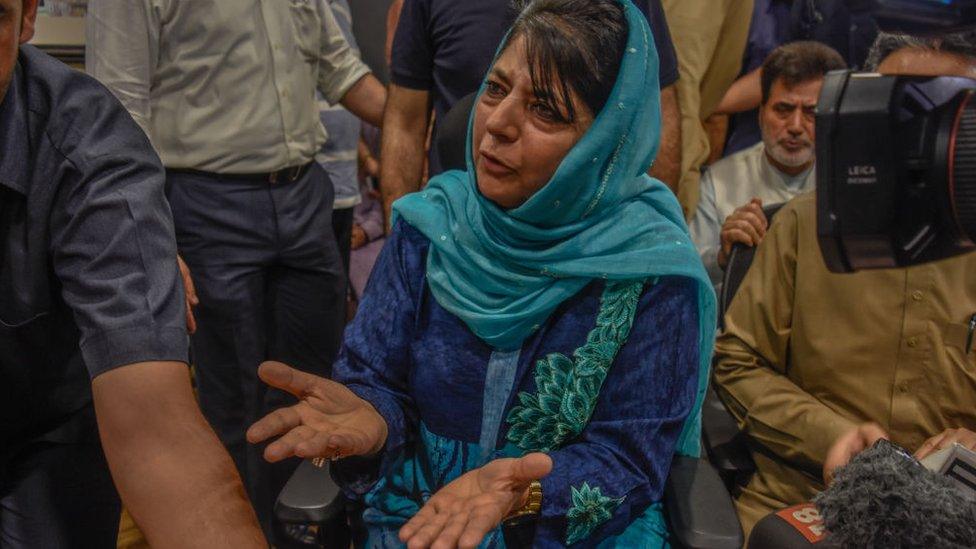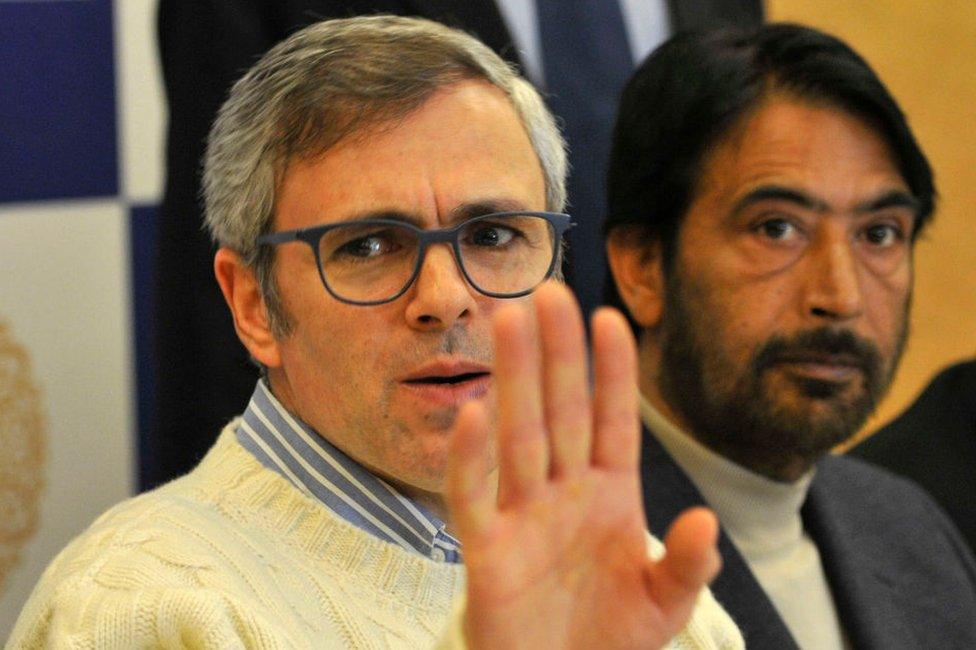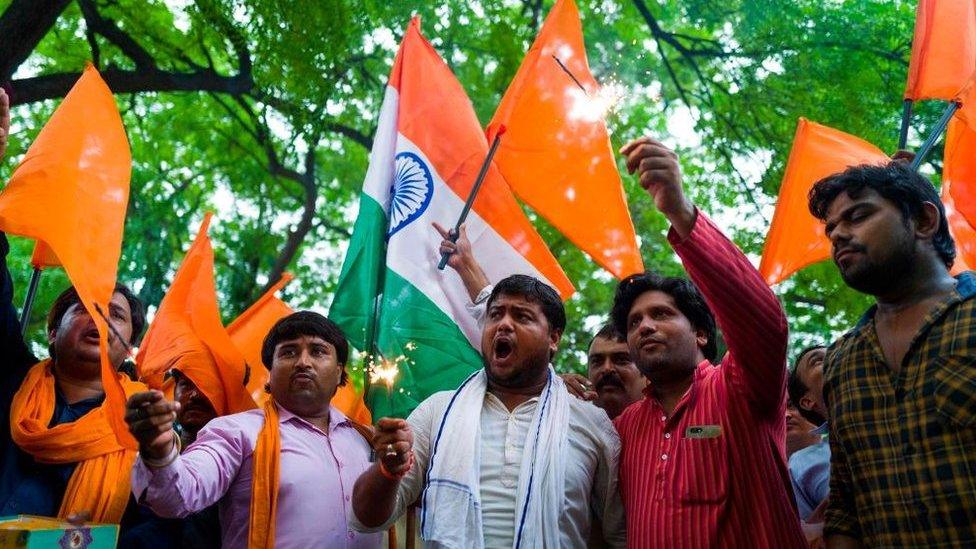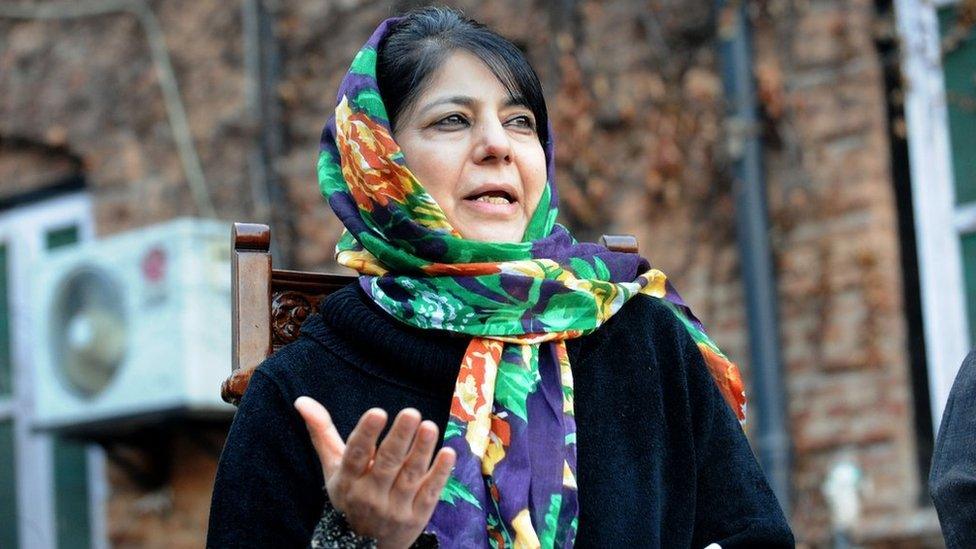Kashmir: India uses 'draconian' law to extend house arrest of former chief ministers
- Published

Mehbooba Mufti has been under house arrest for six months
Two former chief ministers of Indian-administered Kashmir have had their house arrest extended under a controversial detention law.
Mehbooba Mufti and Omar Abdullah have been detained since 5 August when the Indian government stripped Kashmir of its partial autonomy.
The controversial Public Safety Act (PSA) allows detention without charge for up to two years.
The two leaders were set to be released on Thursday.
They have not been heard from since they were placed under house arrest.
Ms Mufti's daughter, who is operating her Twitter account, hit out at the "autocratic" move.
Allow X content?
This article contains content provided by X. We ask for your permission before anything is loaded, as they may be using cookies and other technologies. You may want to read X’s cookie policy, external and privacy policy, external before accepting. To view this content choose ‘accept and continue’.
There has been no word from Mr Abdullah yet.
Critics of the PSA have called it a draconian law.
The government, led by Prime Minister Narendra Modi's governing Bharatiya Janata Party (BJP), is believed to have detained thousands of people including activists, local politicians and businessmen in the days since it revoked the region's special status. Many have been shifted to jails in cities outside the region.
Sources in Ms Mufti's People's Democratic Party (PDP) told the BBC that the BJP is trying to "criminalise mainstream politicians".
"This is not going to help them or the situation in Kashmir," the source said. "How long can you suppress the people of Kashmir? They're creating a pressure cooker-like situation."
Rights group Amnesty India condemned the move in a statement, describing it as a "revolving-door detention" - the practice of repeatedly issuing detention orders so people are kept in detention for long periods.
"This is a way to circumvent the fair trial safeguards of the criminal justice system and undermine accountability, transparency, and respect for human rights," the statement said.

Omar Abdullah is a former chief minister of Indian-administered Kashmir
The region was also placed under a communications blackout on 5 August. The BJP defended the decision, saying it was necessary to uphold law and order.
Although phone connections and internet access have since been partially restored, it's unclear how many Kashmiris are still being held.
The region enjoyed a special status, guaranteed by the Indian constitution, which allowed it to make its own rules about permanent residency, property ownership and fundamental rights.
It underpinned India's often fraught relationship with Kashmir, the only Muslim-majority region to join India at partition.
The decision to strip it of its special status and split it into two federally-administered territories sparked widespread protests in the region.
- Published6 August 2019

- Published4 December 2019
